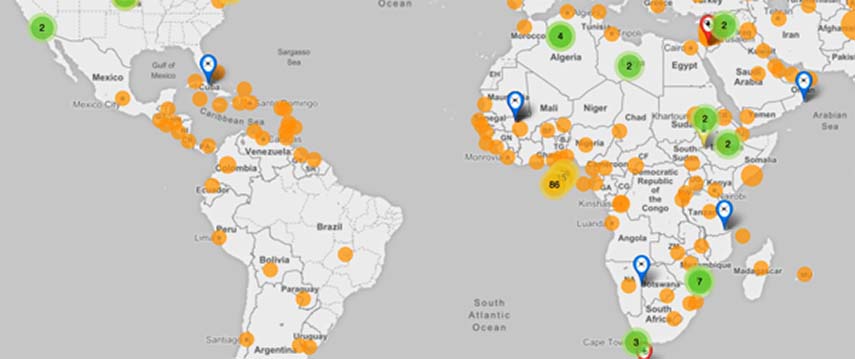The estimated $150-billion forced-labour industry is one of the most pressing social issues of our time, with potentially millions of people around the world being subject to multiple forms of illegal exploitation.
IBM, Stop the Traffik (STT), Western Union, Barclays, Lloyd’s Banking Group, Liberty Global, Europol and University College London have announced the first-ever international data hub between NGOs, law enforcement, and financial institutions providing its analysts with enhanced information to combat human trafficking.
Despite an increased awareness of human trafficking efforts to manually track and counter the issue through legislation, preventative measures and enforcement, initiatives have been fragmented and ineffective – modern slavery is still pervasive in almost all communities.
IBM, STT, Western Union, Barclays, Lloyd’s Banking Group, Liberty Global, Europol and University College London are unveiling the Traffik Analysis Hub (TAHub), an impactful collaboration to more easily facilitate the exchange of information about human trafficking across organisations.
Using Watson Natural Language Understanding, the TAHub has been trained by the IBM Ireland Lab with search terms by STT and other stakeholders for human trafficking incidents, such as exploitation type and demographic details.
The TAHub uses machine learning and structured data from contributors to identify the characteristics of human trafficking incidents (for example, means of transport and recruitment).
Using IBM i2, analysts will also be able to visually analyse the enriched data and combine it with additional data sources to identify trafficking networks, patterns and hotspots to drive intelligence led collaboration.
IBM Watson Discovery is specifically trained on human trafficking terms and, by using machine learning capabilities, ingests open sources of data at scale from multiple sources – such as thousands of daily public news feeds. By training the hub over time, it will improve in accuracy and likely develop predictive capabilities.
“The market is rapidly adopting AI and cloud-based platform models to address siloes across their functions, increase client satisfaction and revenue share,” says Guillermo Miranda, vice-president of IBM Corporate Citizenship. “We’re using the same emerging technologies and applying similar design principles to help the organizations working to save the millions of men, women and children who are trafficked in countries around the world.”
“Today’s event and the announcement of the Traffik Analysis Hub marks the culmination of more than four years of collaborative work with STT. Western Union firmly believes that adopting a multi-agency approach is the most effective path to take to tackle the exploitation and trafficking of people,” says Duncan Deville, senior vice-president and global head of financial crimes compliance from Western Union.
“This initiative is a huge step forward in bringing together information from across multiple sectors, including NGOs, law enforcement partners and financial services, where we can take a truly intelligence-led approach to proactively tackling human trafficking,” says Paul Horlick, director of the financial intelligence unit at Barclays Financial Crime.
“The creation of the Traffik Analyis Hub is an important event in the fight against human trafficking and modern slavery. It is an institutional and structural development to society, industry and hopefully rule of law that will allow much greater data and information sharing and therefore potentially greater trust and collaboration,” says Duncan Jepson, MD of Liberty Global.
“Trafficking in human beings is one of Europol’s main concerns in any of its forms, be it sexual exploitation, labour exploitation, forced marriage,” says Robert Črepinko, head of the European Migrant Smuggling Centre of Europol . “Therefore, we are very pleased to support Stop the Traffik in the fight against this crime.
“We see great potential in this initiative, not only for better prevention and detection of human trafficking cases, but also for a further understanding and awareness raising. We are sure that the technical development of a system that enables data sharing between law enforcement, NGOs and the private sector will help to combat trafficking in human beings on a global scale.”
Professor Kate Bowers of University College London states: “The TAHub brings together two very promising elements: a truly cross-sector multi-agency partnership and an innovative technical approach. We are excited to be on board in our role as project evaluators. Such new initiatives are essential to developing evidence concerning the nature of trafficking and ultimately designing more effective solutions.”
The Data Hub platform will run in a secure IBM Cloud-hosted environment with access granted to authenticated members only.

